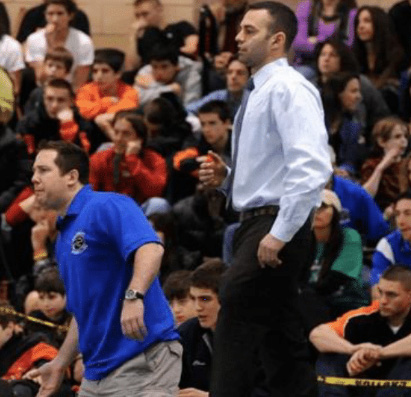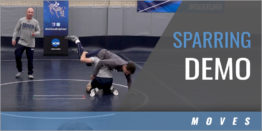10
|
By: Peter Jacobson So, figured I'd share a bit of an embarrassing story from early in my coaching career. When I first got hired as an assistant wrestling coach I was 23 years old. I was just out of college and my last experience with the sport was being on the team in college. I was young, but, in my mind, I knew it all. (I know at least some of you can relate to this!) I was fortunate enough to get hired at my old high school, but, truth be told, our program was never very strong. No worries. I was sure I knew how to go in and single-handedly turn the ship around. After all, I'd been on a college team, I thought. I knew what you needed to do to win. I had all the answers. UGGHH… I literally still shiver down my spine with embarrassment thinking about how arrogant I probably seemed. Needless to say, I didn't even know what I didn't know. My authoritarian coaching style, constant yelling and barrage of negative comments about "being too soft" was not the answer our team or our kids was looking for. Just pushing them harder wasn't a real solution. In the least surprising line of this email: None of that seemed to work very well. In fact, looking back on it, I could tell you it actually hurt our program. It turned kids off to our team. It turned them off to our sport. And, I'm sure, it turned kids off to me. Not to let this damage my steel-plated armor of undeserved confidence, I immediately "recognized" the problem was with our kids. I mean, what else could it be? This coaching style worked on me when I was younger. "It's the kids these days." And, just like that, I uttered the words that have lead to the downfall of many well-meaning coaches over the years. Whatever your thoughts are about "kids these days," love 'em or hate 'em, the one point you can't argue is that, if you want to coach successfully, you need to learn how to work with them and help them reach their potential. With many more years of perspective on my side now, I'll be the first to tell you, I actually don't think kids have changed at all. But what definitely has changed is the environment and the culture they've grown up in. What that means for us is that what worked well 20 years ago, may not work quite as well now. I like to think about it this way: do I want my doctor giving me the medical advice that made sense 20 years ago or the advice that works well today? No brainer. Why should coaching be any different? Here's the thing, though: we're only human and change is hard. The reality is there are a lot of ways we can (and probably should!) adapt to be as effective as we can be with today's kids. I scratched the surface of this in my email last week, talking about creating a culture of caring. For this generation of kids to fully buy-into your coaching, there has to be a deep level of trust, and, to create that deep level of trust in today's world, it takes more than just demonstrating your competence or leaning on your authority. They need to know you care. Insert coaching cliché here: Players don't care how much you know until they know how much you care." There are many ways, but one of the most effective strategies in your tool-kit takes advantage of two powerful forces of psychology:
So, when a coach, who has the power to exert control, grants some of that control to his athletes, he's building trust in two ways:
Now here's the million dollar issue… How many of you are thinking: "Give them control? I don't even have time to get to everything in my practice plan! The kids don't know what they need to do to reach their potential! That's like the inmates running the asylum!" I hear you! I felt the same way! Well here's the million dollar answer (and a coaching strategy that can make a huge difference in your program!): Control isn't a black and white issue, and as coaches we can take full advantage of this to get all the psychological benefits we talked about without giving away the farm! Here are some quick tactics to make it happen in your program today:
I'll be honest, I think the most amazing thing about this is the boomerang effect it's had on me. The more choices I've given our guys, the more they've demonstrated their capability and the more they've built my trust in them. Once you have this kind of two-way trust, everything else you do to build your culture and commitment becomes so much more focused as well - like a magnifying glass focusing sunlight to make it more intense. The culture building strategies we've used in our program seem to be 10x more effective when we build this kind of trust first. Here are 10 of the most effective, impactful things we've done. Our program is so much stronger because of it! I love this stuff! Hope this helps you guys too!
Pete Jacobson has been a varsity HS coach in New York for almost 20 years. He also works with coaches of all levels through WinSmarter to help them get better at what they do, have a greater impact and go home happy. Check out 10 Insanely Powerful Tactics for a Dominant Team Culture for some of the most impactful tactics you can use to build a Championship program quickly. |








